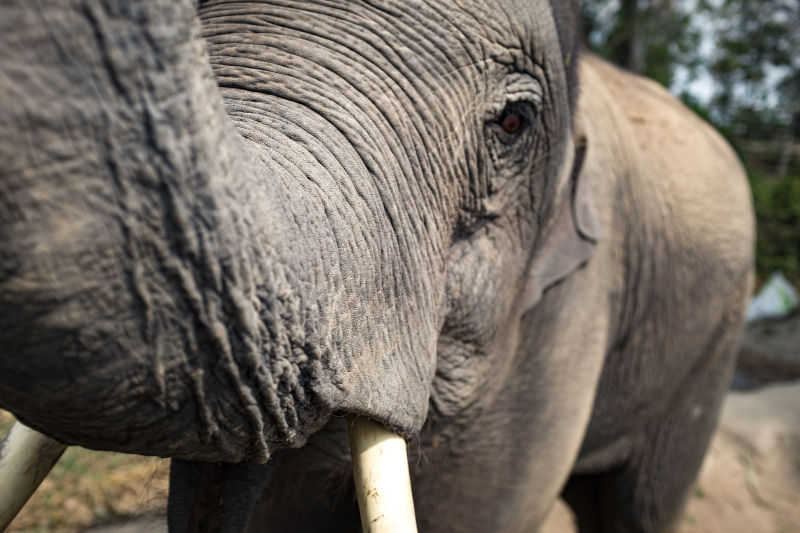
As the international conference on trade in endangered species just ended, let’s recall one of its most prominent issues – the efforts to prevent elephants from becoming extinct – and what the European Union and its Member States are expected to do next.
Elephants are facing their worst crisis in decades due to poaching for their ivory. Populations are thought to be falling by about 8 percent annually and at least 20,000 African elephants continue to be killed each year.
The 2016 Conference of the Parties to the Convention on International Trade in Endangered Species of Wild Fauna and Flora (CITES), the treaty that governs the international trade in wildlife and wildlife products, adopted a resolution—by consensus—calling on all countries to close their domestic ivory markets if they contribute to poaching and illegal trade.
The International Fund for Animal Welfare (IFAW) believes that, until such markets are shut down, efforts to end the poaching crisis and stop criminal syndicates from trafficking ivory will be frustrated.
The EU is widely considered the third largest destination for illegal wildlife, but it’s also an important transit and source region for illegal wildlife products. Species are going extinct at an unforeseen pace and while some global leaders are praising young generations for striking and protesting for the environment, their own lack of action is still sadly tangible.
Therefore, since then, IFAW along with other animal welfare and conservation NGOs, has been tirelessly advocating the EU to close their domestic ivory markets as a matter of urgency. In 2017, IFAW launched a campaign aimed at closing EU ivory markets and polled citizens across the EU finding that 65% would support a ban on the ivory trade. We worked with the European Parliament to pass two resolutions calling for the end to the ivory trade within the EU. Then, in May 2018, we coordinated together with other NGOs a letter signed by more than 90 Members of the European Parliament calling for a total ban on ivory trade and imports in the EU. We also worked closely with the European Commission who in 2017 released a guidance document that recommended suspending (re)export of raw ivory items, but was not binding to Member States.
Still, the current EU regulations afford too many opportunities for criminals to pass off ivory from poached elephants as antiques and export to other markets around the world. In short, all legal ivory markets fuel illegal trade and the poaching and killing of elephants. As a minimum we strongly recommend that the EU take the following actions, which would limit trade in ivory to highly specific circumstances:
- Certificates for all transactions involving any derogated ivory items, irrespective of their age, should be required by the competent national authorities.
- The scope of any derogations for worked ivory should be limited to existing musical instruments (including their repair) produced before 1975, and items of outstanding artistic value and importance.
- Appropriate guidance should be developed on the EU level with regard to assessing the historical, cultural and artistic value of the aforementioned items and the authorisation of reliable experts, approved and registered by the relevant Member State, with the expectation that such items would be limited in number.
- Trade in raw ivory within and from the EU should also be prohibited with limited derogations only for raw ivory acquired before 1975 for the repair of existing musical instruments and other items falling under the narrow derogation proposed above, with certification requirements.
We have seen some promising steps for the protection of elephants steered also by pressure from public opinion and NGOs. China and the USA have taken measures to close their ivory markets. Hong Kong SAR and Taiwan have committed to following China’s lead and now Singapore is moving towards closure.
At the CITES meeting (CoP18) that ran from August 17 through August 28, 2019, a coalition of 30 African elephant range countries tabled a proposal asking all domestic markets of ivory to be closed. The proposal was voted down. Instead, countries that are yet to close their domestic markets have been asked to report back on measures they plan on taking at the next CITES conference. Nevertheless, at CoP18 the EU has revealed that it will soon be introducing new regulations to help combat the trade in ivory. We therefore urge the EU to release in the next following months EU-wide measures to harmonize the national bans already adopted by the UK, France, Belgium and Luxembourg, which have closed or restricted their ivory markets.
We do not know the details of their proposal and there is still some work to do until winning this fight, but we all keep up the good work in order to save this iconic species.

by Eleonara Panella, senior campaigner at IFAW
IFAW works in more than 40 countries to rescue and protect animals and their habitats, for a world where animals and people can thrive together.
Eleonora Panella joined IFAW in July 2016 and works from the Brussels office as senior campaigner. She spent the last ten years working on marine, fisheries and environmental issues related with the EU. With a background in biology, a master in biodiversity and European studies, she has worked for World Wildlife Fund, Pew Charitable Trusts, the European Parliament and the European Maritime Safety Agency in Lisbon.


